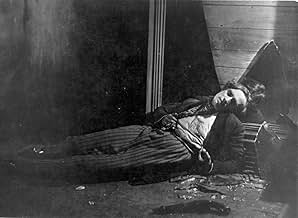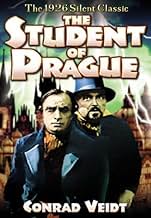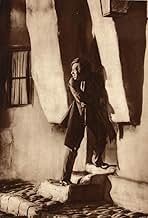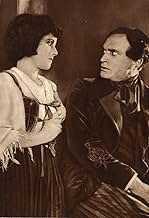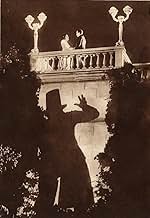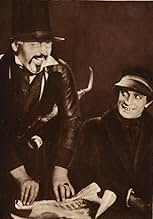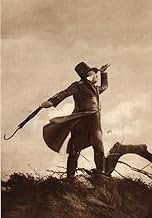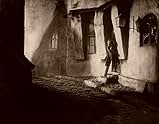Aggiungi una trama nella tua linguaFor Balduin, going out to beer parties with his fellow students and fighting out disputes at the tip of the sword have lost their charms. He wants to find love; but how would he, a penniless... Leggi tuttoFor Balduin, going out to beer parties with his fellow students and fighting out disputes at the tip of the sword have lost their charms. He wants to find love; but how would he, a penniless student, ever dare looking up to any woman worth of loving? Absorbed in his dreary though... Leggi tuttoFor Balduin, going out to beer parties with his fellow students and fighting out disputes at the tip of the sword have lost their charms. He wants to find love; but how would he, a penniless student, ever dare looking up to any woman worth of loving? Absorbed in his dreary thoughts and indifferent to the advances of Lyduschka, Balduin is unexpectedly offered a fortune... Leggi tutto
- Regia
- Sceneggiatura
- Star
- Liduschka, Blumenmädchen
- (as Elizza la Porta)
- Comtesse Margit, seine Tochter
- (as Agnes Esterhazy)
Recensioni in evidenza
** 1/2 (out of 4)
German horror/drama is a remake of the 1914 version, which was the first German horror film. A poor college student (Conrad Veidt) falls in love with a rich girl but knows he'll never get her due to his poorness. Then enters Scapinelli (Werner Krauss), a strange man who offers the student 600,000 gold pieces in return for something from the students room. The student agrees but is shocked when the man takes his soul. Outside the good performances by Veidt and Krauss, this film really doesn't add too much that the 1914 film didn't do better. This film here runs fifty-minutes longer but the tiresome pace doesn't help matters and even the special effects were better done in the previous version.
A mephistophelian character named Scarpinetti offers to deliver on that, and in one scene dramatically stands atop a windy hill by a fallen tree gesturing towards a hunting party. They seem to follow his directions, which leads to a rich heiress having trouble with her horse near Balduin, who rescues her.
However, this is just a tease from Scarpinetti. Balduin goes to visit the woman later, taking with him a flower from a poor flower girl (who seems sweet on him). He fidgets with the flower behind his back, and seems to be contemplating giving it to the rich woman, when her fiancé's large flower arrangement arrives. Balduin realizes he needs money to woo this woman (forgetting, seemingly, that he'd wanted a rich woman for money in the first place anyway).
He makes a deal with Scarpinetti: 600,000 pieces of gold (! - error in the intertitle, maybe?) and Scarpinetti gets to take anything he wishes from Balduin's room. He manages to take Balduin's mirror reflection, and while that would seem to be the end of the deal, Scarpinetti still influences events in Balduin's life.
There are some striking scenes in the movie, and some scenes that really drag. One that goes on for a long time is a party after someone had died, and there doesn't seem to be much purpose to it, or at least for it to have been so long.
Balduin's mirror reflection doppelganger doesn't show up much, but figures in more towards the end, which is pretty satisfactory. I'm curious to see the other adaptations of this story now as well.
Obviously, close-ups and medium shots were common by 1926, where there were none in the aforementioned film of 1913. There's scene dissection, some inspired cinematography and editing and expressionistic sets by Hermann Warm, as well. We actually get to see the actors here, and Conrad Veidt and Werner Krauss do exceptionally well. The gypsy storyline fits into this version easily.
Cinematographers Günther Krampf and Erich Nitzschmann produced a large shadow of the Devil, which interacts with mass, in one shot; superimpose a saw cutting at Balduin's head in a moment of internal narration; shake the camera for a drunk POV shot; use irises and move the camera during close-ups. The rescue from a horse scene and the haunting finale are the most impressive visually, for the chiaroscuro lighting, special effects and editing. Some shots even seem intentionally reminiscent of the 1913 version. Additionally, the filmmakers were able to punctuate the mirror motif within this film of the doppelgänger thanks to state-of-the-art effects.
The only things I know about director Henrik Galeen are that he directed "The Golem" and wrote "Nosferatu." But I am willing to maintain that he was a movie genius of the first order. His work is full of wonderful expressionistic flourishes, reminiscent of "Caligari," which is probably not surprising since the two movies share the same production designer, Hermann War (they also share Veidt of course). The movie's highlights are unforgettably effective, including the fantastic moment when Scapinelli's giant shadow snatches a love letter that Balduin has sent to the countess. In another scene, Galeen uses a shaky hand-held camera for a drunken POV shot. There's also a neat bit of foreshadowing in an early scene in which Balduin fences with himself in the mirror. I noticed some other shots that anticipated future movies:
o A long shot of Scapinelli, in silhouette, alone on a hilltop next to a solitary tree, vowing revenge ("Gone With the Wind") o A fox hunt captured through hand-held cameras and jerky editing ("Tom Jones") o A lovelorn girl sublimates her unrequited feelings for a guy by secretly cleaning his apartment ("Chungking Express") and get a load of the way she fondles his saber! YOW!
Either these shots are coincidences, or "The Student of Prague" was far more influential than is generally known.
Well, now that I have finally bagged "The Student of Prague," I can turn my quest to two other objects: (1) a decent print of it (preferably in a theatrical screening); and (2) the original 1913 movie, of which this 1926 version is just a johnny-come-lately remake.
'The Student of Prague' deserves a lot more credit than it gets at the moment. It is not one of my favourites and is not quite perfect, but there are so many good, brilliant even, things that made 'The Student of Prague' a very memorable experience for me. Not quite among the best of my recent first time viewings, but one of the most interesting and most unique because of its visuals and atmosphere. Anybody who hasn't seen it yet and has an interest to, definitely do so.
Don't know where to start with the praise, but will start with the visuals. Visually and technically, 'The Student of Prague' is another silent film to be a triumph. The sets are elaborate and hauntingly expressionistic, the effects are generally remarkably accomplished (occasionally showing their age though) and the lighting has a real eeriness, but the standout is for me some of the best cinematography for any film of the late 20s. It is the complete opposite of static and is actually wildly imaginative. Making for some memorable images, like Scapanelli on the mountaintop, the snatching of the love letter with great use of shadow and the rescue scene. The music may not be one of the most inspired or memorable music scores in the world, but it at least is not discordant with what happens and has an unsettlement.
Although the story is imperfect in terms of pacing, it just captivates atmosphere-wise. There is a genuine creepiness and the confrontations leaves one glued to the edge of the seat. The dramatic highlight is the final confrontation, which is nothing short of hair-raising. Both Balduin and especially Scapinelli are fascinating characters and the chemistry between Balduin and the reflection is immediately intriguing and stays that way throughout. Veidt is very dashing and charismatic but also chilling when necessary. Werner Krauss is every bit as good and while he has fun as Scapinelli he also sends shivers down the spine. The film is superbly directed, especially in the final confrontation.
It's not perfect but actually doesn't have an awful lot wrong with it. It's flawed pace-wise, with some draggy scenes. Such as a party scene that is overlong and adds nothing.
Elizza La Porta is charming enough but her character isn't as meaty and she doesn't have the same amount of charisma that Veidt and Krauss do. As a few have said, the print is pretty shoddy but not enough to render 'The Student of Prague' unwatchable.
On the whole, very good and deserves more credit. 8/10
Lo sapevi?
- QuizElizza La Porta's debut.
- Versioni alternativeVersion restored in 1999 for the Munich Film Archive based on a copy with Spanish intertitles from the Archivo Nacional de la Imagen y la Palabra - Sodre in Montevideo that was secured by L'Immagine Ritrovata, Bologna, and a German copy secured by Gosfilmofond, Moskow. The version has been re-tinted, with the tinting only partially matching that of the Spanish copy. Music by Stephen Horne, sound Orpheus Studio, London. Runtime 2 hours 13 minutes.
- ConnessioniEdited into Histoire(s) du cinéma: Le contrôle de l'univers (1999)
I più visti
- How long is The Student of Prague?Powered by Alexa
Dettagli
- Data di uscita
- Paese di origine
- Lingua
- Celebre anche come
- The Student of Prague
- Azienda produttrice
- Vedi altri crediti dell’azienda su IMDbPro
- Tempo di esecuzione1 ora 50 minuti
- Mix di suoni
- Proporzioni
- 1.33 : 1
Contribuisci a questa pagina


